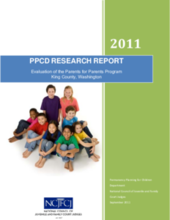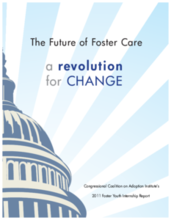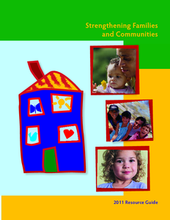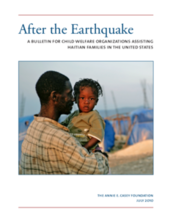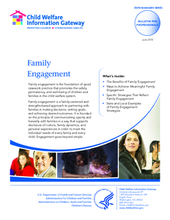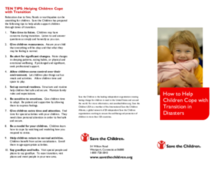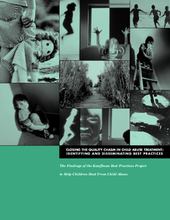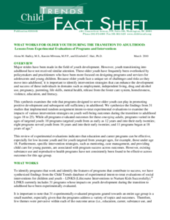Displaying 2141 - 2150 of 2221
This study uses data from the 2005 National Household Education Survey to examine the effects of child care subsidies on the enrollment of low-income children in early childhood education programs.
This paper explores malnutrition among children in foster care in the U.S. and programs and interventions that help to improve the nutritional health of children in foster care.
This process evaluation of the King County Parents for Parents Program (P4P) examines the program’s efficacy and suggests areas for continued improvement.
Released by a group of former United States foster youth as a comprehensive report on the system in which they were raised, this report details the Congressional Coalition on Adoption Institute’s (CCAI) Foster Youth Internship (FYI) recommendations on improving hot-button issues ranging from immigration, education, mentoring, psychotropic drugs, child abuse and government accountability
Resource guide developed to support service providers in their work with parents, caregivers, and children to prevent child abuse and neglect
Practical information for agencies and advocates working with this Haitian children and families following the January 2010 earthquake, with special guidance on filing federal Temporary Protective Status applications.
Family engagement is the foundation of good casework practice that promotes the safety, permanency, and well-being of children and families in the US child welfare system. This brief offers information to help State child welfare managers improve family engagement across program areas.
A leaflet for parents on how to help your child cope during an evacuation or relocation in an emergency.
An overview of considered best practices in therapy for child survivors of physical and sexual abuse.
A new Child Trends fact sheet examines the role that programs for older youth can play in promoting positive development and subsequent self-sufficiency in adulthood.

